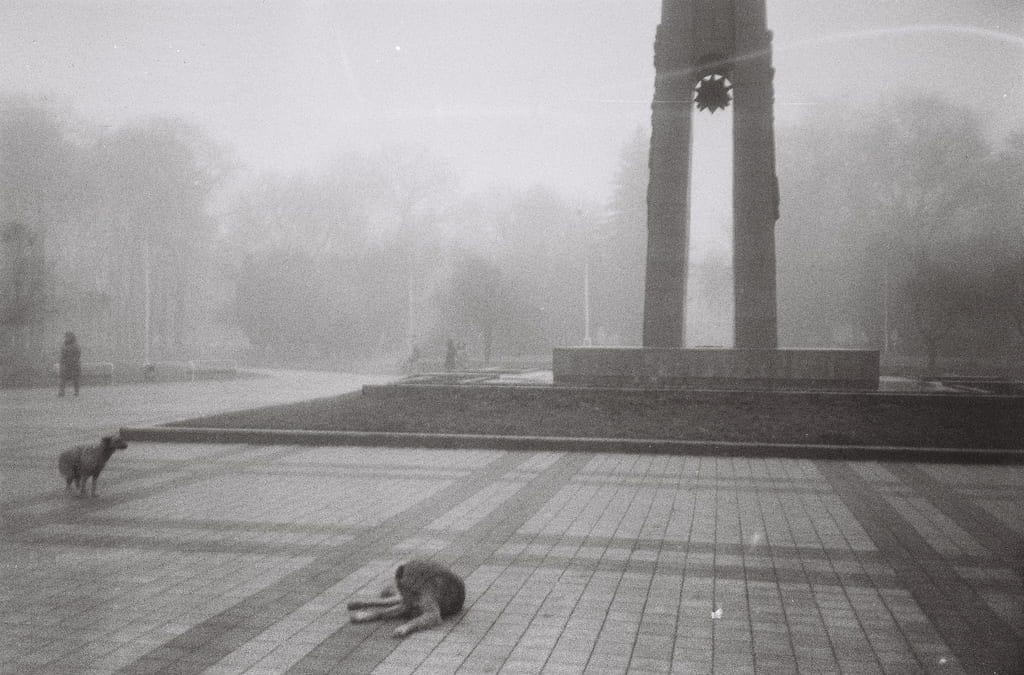Post/human Approaches to Design and Teaching?
Lately, it seems like you can’t turn a corner without being smacked in the face by the specter of posthumanism. As with other educational philosophy trends of yore (I’m looking at you, constructivism) posthumanism is the hot new goodness at the moment. If you haven’t heard about posthumanism yet you will. Oh just you wait.
So what is posthumanism?
The term posthumanism is a darn slippery signifier with many competing definitions and subcategories. There is no one posthumanism but many posthumanisms. Let’s try to start with a definition. Ok, so in common parlance, we use post to mean after. However, when looking at philosophical uses of post the term might refer to a break in thought, a complication of thought, or even a continuation of thought – or all three simultaneously. Thus, the word post doesn’t refer to any one thing. To complicate the issue many theorists working in the broad post-thought paradigm do not label their own work as post-whatever but have this label foisted upon them. The same fluidity of meaning is also apparent in the human/humanism portion of the term. Here, are we talking about human beings, the humanist tradition, both, or something else entirely? And if we do settle on, say, defining what it is to be human can we settle on one definition there either? I don’t think that we can – but this isn’t necessarily a bad thing. Instead, this infinitely deferred meaning could, instead, lead to a violent flowering of theoretical and practical applications. I believe that we’re in this situation now.
Alright, so we can’t define posthumanism as any one thing. However, many theorists do settle into several different, always overlapping camps based on the possible or real effects of posthuman existence. Broadly, posthumanism can be viewed as either inevitable or optional, positive or negative, contemporary or historical – or as a complex mix. To help you get a (temporary) grip on this field, here are some educationally-themed posthuman theoretical questions, all imbued with their own value judgments:
- What effect has humanism had on the modern Western educational system?
- What does it mean to be a student in an always-on digital economy?
- What happens if we decenter the importance of human beings and, instead, consider a more symbiotic approach in teaching and learning?
Why the emphasis in education suddenly?
In general, think that posthuman paradigm is really a reflection of the ancient and ongoing tension surrounding the concept of essence. For instance, what is the essence of the human experience? What essential features make up a particular theoretical orientation? Do essences exist? If they do, do they matter? And what is a thing if not an essence? Perhaps process, experience, or art? None of these questions are new: They’ve all been asked for millennia. So, from this perspective posthumanism isn’t an entirely new theoretical approach. Rather, it is an approach that attempts to decenter essentialist views of human culture, roles, and responsibilities. This same type of theoretical – and practical – move has been made in education over the past few decades with attempts to question and blur the ostensibly essential lines between student and teacher, formal and informal education, education and training, and public and private institutions. Importantly, this softening has been taken up and deployed in strategically complex ways that both emancipate and restrain.
This is interesting but very, very simplistic (and also overly broad). Where can I learn more?
Yep, I’m not expert in this area. If you’d like to learn more about posthumanism here are a few places to start:
Donna Haraway
Haraway is one of the founders of the postfeminist strain of posthumanism and has been developing her theory for several decades. Her 1985 Cyborg Manifesto is a must-read in the field. She’s also super fun to listen to and watch:
Michel Foucault
Good old Foucault is everything to everyone, isn’t he? His genealogical approach towards discourses of control and organization is often used in posthuman research. Diprose wrote an interesting piece in 2009 using Foucualt’s concept of biopower to elucidate a posthuman ethics.
South African Journal of Higher Education: Themed Issue
This special issue from 2016 contains several articles that place posthumanism thought within a higher education context. Notably, each article includes specific criticisms and complications of the emergent field.
Image Credit: post-soviet, post-human by Michael Lipartia

